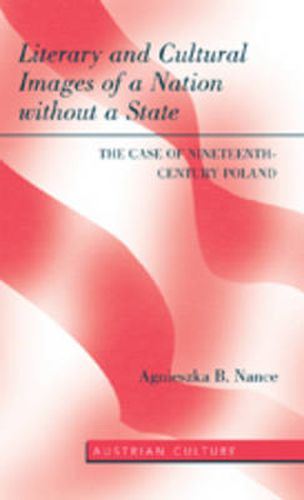Readings Newsletter
Become a Readings Member to make your shopping experience even easier.
Sign in or sign up for free!
You’re not far away from qualifying for FREE standard shipping within Australia
You’ve qualified for FREE standard shipping within Australia
The cart is loading…






Literary and Cultural Images of a Nation without a State applies Benedict Anderson’s theory about the coherence of imagined communities by tracing how Galicia, the heart of Polish culture in the nineteenth-century - which would never be an independent nation-state - emerged as a historical and cultural touchstone with present-day significance for the people of Europe. After the Three Partitions and Poland’s complete disappearance from Europe’s political map, images of Poland arose to replace the lost kingdom with a national identity grounded in culture and tradition rather than in politics. This book examines the circumstances leading to Galicia’s emergence as the imagined and representative center of Polish culture, juxtaposing the era’s political realities with its literary texts to provide evidence of the cultural community that existed among ethnic Germans and Poles. Collectively, these images reflect a dialogue about Polish identity, and in consequence about the rise of a new European identity that did not correspond to ethnic nation-states but rather to a shared culture, history, and community that Galicia came to represent until its division between Poland and the Ukraine following World War I.
$9.00 standard shipping within Australia
FREE standard shipping within Australia for orders over $100.00
Express & International shipping calculated at checkout
Literary and Cultural Images of a Nation without a State applies Benedict Anderson’s theory about the coherence of imagined communities by tracing how Galicia, the heart of Polish culture in the nineteenth-century - which would never be an independent nation-state - emerged as a historical and cultural touchstone with present-day significance for the people of Europe. After the Three Partitions and Poland’s complete disappearance from Europe’s political map, images of Poland arose to replace the lost kingdom with a national identity grounded in culture and tradition rather than in politics. This book examines the circumstances leading to Galicia’s emergence as the imagined and representative center of Polish culture, juxtaposing the era’s political realities with its literary texts to provide evidence of the cultural community that existed among ethnic Germans and Poles. Collectively, these images reflect a dialogue about Polish identity, and in consequence about the rise of a new European identity that did not correspond to ethnic nation-states but rather to a shared culture, history, and community that Galicia came to represent until its division between Poland and the Ukraine following World War I.